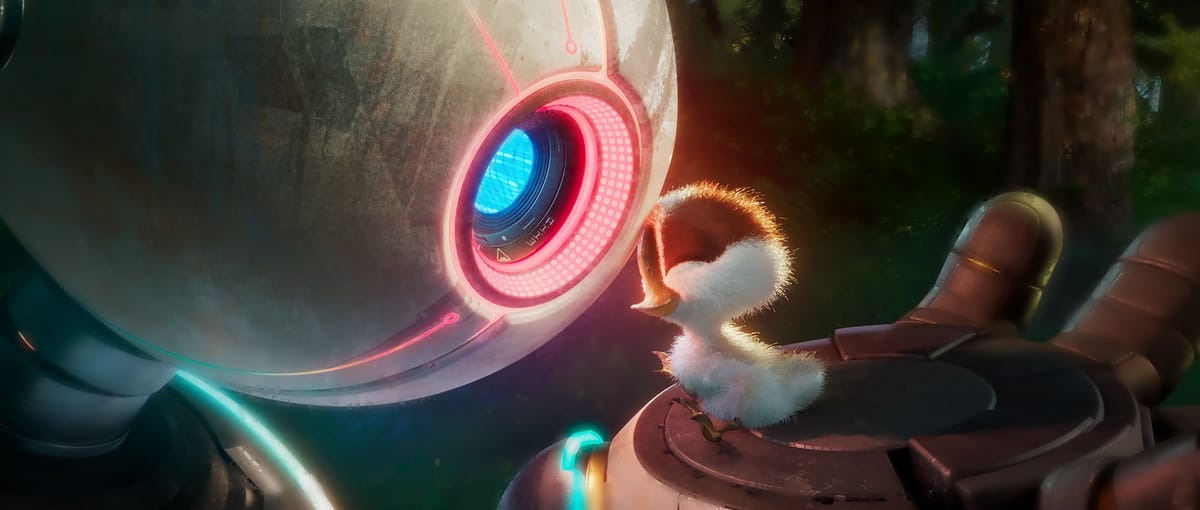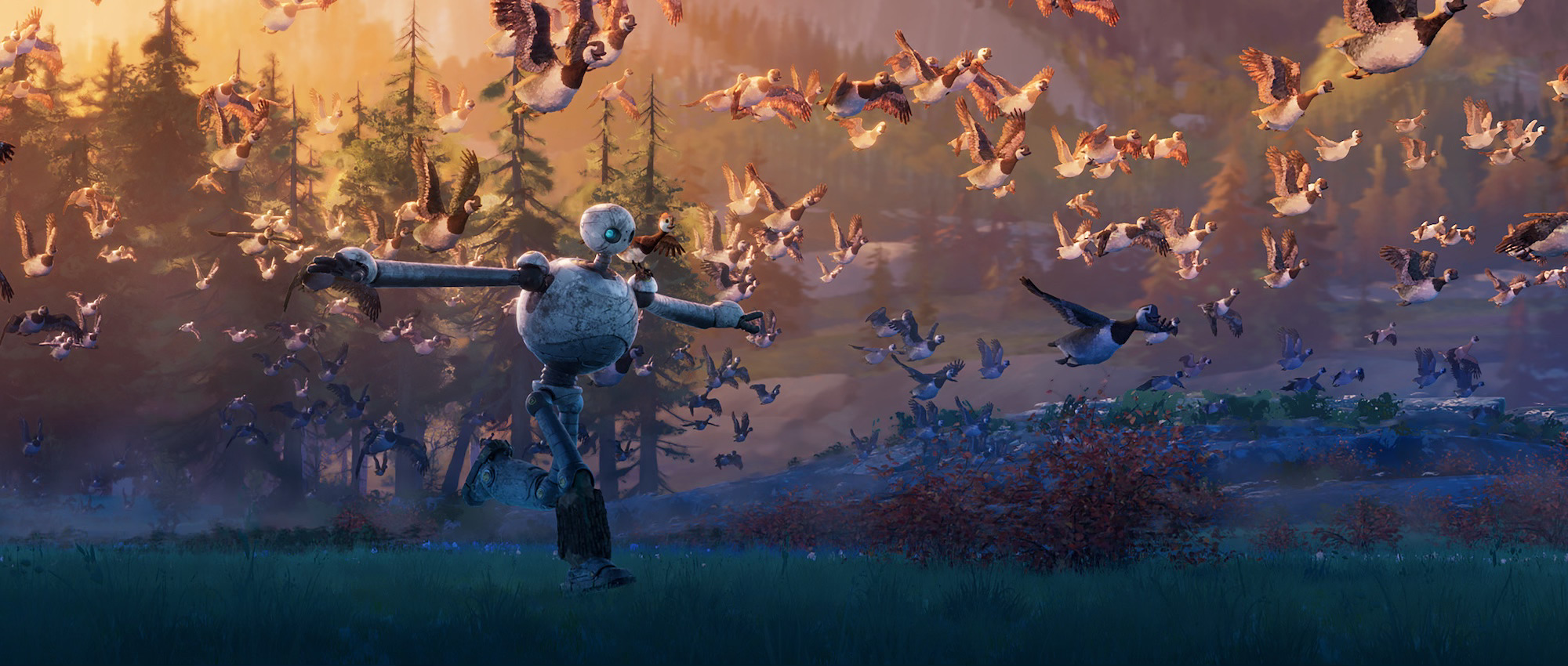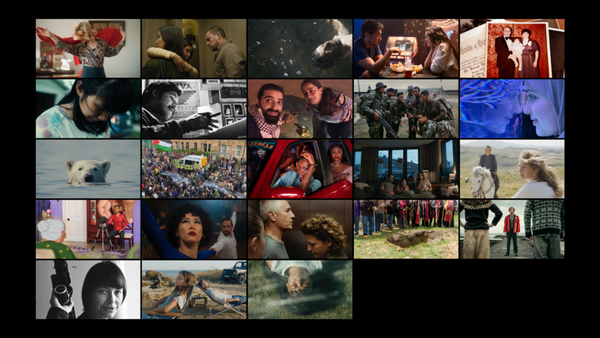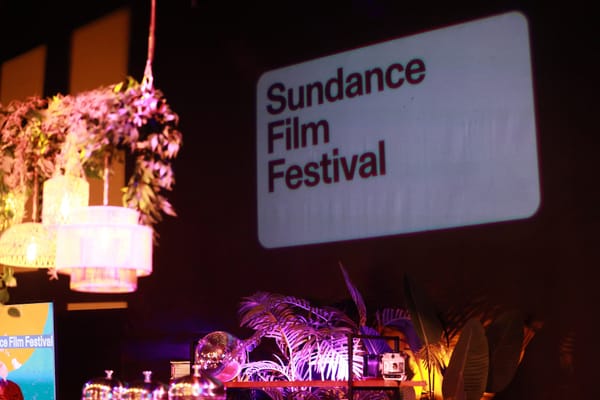‘The Wild Robot’ Packs an Overwhelming Emotional Wallop
Chris Sanders’ gorgeous film can sometimes feel like a Pixar movie on steroids.

Today I’m pleased to present Matt Goldberg’s review of The Wild Robot. Matt is a talented film critic and commentator whose work can be found at . -David Chen
To rewind the clock to the late 90s/early 00s, there were really only two major animation studios: Pixar and DreamWorks Animation. Pixar received all the acclaim and adoration as it delivered stories perfectly calibrated to tug at your heartstrings. DreamWorks, meanwhile, used Shrek as its template for success, emphasizing comedy and pop culture rather than trying to land an emotional crescendo. However, in 2010, there was a major deviation when DreamWorks released How to Train Your Dragon, a film from Lilo & Stitch directors Chris Sanders and Dean DeBlois, that was more emotionally rich and uplifting than anything the studio typically produced. If not for Toy Story 3 almost killing all of its characters in a trash incinerator before sending them off to a new owner, there would likely be no question about the year’s strongest animated film.
Fourteen years later and Sanders is back at DreamWorks, this time directing solo. With his latest film, The Wild Robot, Sanders has out-Pixar’d Pixar. While the film is unlikely to unseat Inside Out 2 for the highest-grossing animated film of all time, there is no question Sanders and the talented creatives at DreamWorks Animation have far exceeded the emotional impact of Pixar’s popular sequel. The Wild Robot is an unabashedly earnest story of motherhood and community that draws inspiration not only from How to Train Your Dragon and Lilo & Stitch but also combines other robots that made you emotional including The Iron Giant, WALL-E, and Baymax. It’s to Sanders’ credit that the film still feels original and unique rather than a machine cobbled together from better parts.
The story wisely hits the ground running with the Rozzum-7134, aka “Roz” (Lupita Nyong’o), a helper robot, crash landing on an island with no humans to assist but plenty of animals that view her with suspicion and disdain. After a series of close calls and chases, Roz accidentally kills a nest of geese except one, the runt of the bunch. Her programming looking for a task, Roz chooses to raise the gosling, who imprints on the robot. With the reluctant help of lonely fox Fink (Pedro Pascal), the duo works to raise the bird so it can learn to fly and migrate for the winter. Along the way, Roz discovers she is much more than what she was programmed to be.

One of the smartest things The Wild Robot does is keep its powder dry in the first act. The emotional hits keep coming throughout the second and third acts of the movie, but for the first half hour or so, the film is more an action/comedy hybrid with an out-of-her-element Roz seeking to survive the wilderness. More importantly, Sanders is unafraid to throw in some bits of dark comedy, and while there’s nothing in here that would scar a child, these beats serve as reminders that nature doesn’t have a moral code. The adorable crab will get eaten by a bird not because the bird is malevolent but because birds gotta eat. The film acknowledges that nature can be brutal and unforgiving and then asks if kindness has any place in an ecosystem based on survival.
While the movie never completely abandons comedy, it gets progressively more emotional as Roz bonds with the gosling, Brightbill (Kit Connor). The film is always threatening to be too much as it loads up on themes of adoptive parents, children with special needs, environmentalism, and the importance of community. There are also times when characters speak in platitudes or pretty much announce that they’re going to drop a pearl of wisdom, and yet The Wild Robot manages to keep dancing on the side of earnestness rather than saccharine overkill. Again, that first act is essential in creating a baseline from which to grow as opposed to a film like this year’s IF, which lunges at your heartstrings from the get-go. The Wild Robot is always threatening to be too much but maintains its honesty because there are distinct thematic underpinnings here rather than a frenzied grab for an emotional reaction.
Perhaps that’s because, despite their many differences, the themes of How to Train Your Dragon swim beneath the surface of The Wild Robot. Both movies are about communities that view an outsider with suspicion and disdain and how a bond between that outsider and a social pariah can lead everyone toward a better path. In both movies, it’s not simply tone policing or a “can’t we all just get along?” homily, but rather that kindness itself is an act of bravery that also demands sacrifice. To borrow a phrase from another story set in the woods, these are movies that show that nice is different than good.
Sanders puts all his gifts at his disposal to tell this story, and if nothing else, The Wild Robot is the most visually stunning of the year’s major animated features. You can really appreciate how much Spider-Man: Into the Spider-Verse changed things when it came to how these films are styled; studios aren’t abandoning CG animation, but they’re finding ways to reintroduce the warm 2D textures and details that made the previous generation of animation so endearing. The eye to detail here is astounding, not only in the jaw-dropping tableaus but in the little things like how there’s a well-worn space on Roz’s metallic body where Brightbill curls up – a level of specificity that always keeps the story grounded.
For some, The Wild Robot may be too much. The movie feels like it has several emotional climaxes, and I certainly felt wrung out by the end, as if every last tear had been drawn out of me. And yet those tears never felt stolen or clumsily siphoned. I’m not sure if Pixar will ever fully return to its emotional heyday. DreamWorks Animation may only get there sporadically. But The Wild Robot is a potent reminder that we could occasionally use a movie that gives us a good cry. -Matt Goldberg
Stuff David Chen Has Made
- On Decoding TV, Patrick Klepek and I discussed what we thought of the new HBO original series The Penguin. Listen here.
- On The Filmcast, we reviewed Transformers One, which I think is a great family feature with some surprisingly deep ideas.
@davechenskyWhat its like to go on a #vip #tour at #disneyland on your #vacation . (Featuring @Ordinary Adventures!)

Tiktok failed to load.
Enable 3rd party cookies or use another browser



